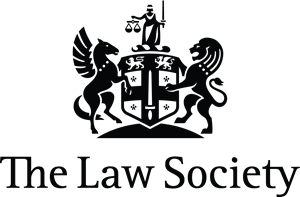Defamation is a serious legal concern that has the potential to seriously harm the reputation of a person or an organisation. Our expertise at Adam Bernard Solicitors is navigating the complexity of defamation law expert legal representation for defamation cases in the United Kingdom, giving our clients the information and assistance they need to handle their unique circumstances. This article explores the basic elements of defamation, including its definition, how it is handled, and the procedures we use to safeguard our clients’ rights.
Call us on 0207 100 2525 for immediate help & assistance with your situation.
We’re here to help you in person, via the phone or online.

Generally speaking, defamation is the act of spreading untrue information about a person or organisation in order to harm their reputation. There are two main categories of defamation recognised by law:
Libel: This is used to describe false statements that are published in a fixed media, like broadcasts, written publications, or internet articles. Due to the fact that libel often has a more profound effect and makes it simpler for the claimants to demonstrate the harm their statements have caused.
Slander: Slander, on the other hand, refers to verbal defamation. Because slander is usually a temporary offence, it is frequently regarded as less harmful than libel. For the victim, it may still have serious consequences.
In order to establish if a false remark has been made and whether it has harmed someone’s reputation, both types of defamation require a thorough legal study.
Defamation claims require the establishment of certain essential elements in order to be proven. Here at Adam Bernard Solicitors, we assist our clients in comprehending these essential elements:
A False Statement: The claimant must provide evidence that the disputed statement is untrue. Since truth is the best defence against defamation, the suit will be unsuccessful if the statement can be shown to be true. Our staff looks into the statement in detail to find information that either supports or disproves its accuracy.
Publication: The false statement needs to be published or made known to someone other than the claimant in order for it to be considered communicated to a third party. This might involve distributing the statement digitally, print media, or in person. Our solicitors make sure that the publication aspect is established precisely because it is an essential part of any defamation lawsuit.
Harm to Reputation: The claimant has to demonstrate that their reputation was harmed by the misleading statement. Numerous outcomes may result from this, including strained personal bonds, missed career prospects, or lowered public opinion. Our staff helps clients record the negative consequences of the defamatory comment, which may involve obtaining expert or witness testimony.
Fault: In the UK, the claimant additionally needs to show that there was some error in the statement. Usually, this requires showing that the defendant behaved carelessly or maliciously. A higher standard of proof is applicable in cases involving public people, necessitating the claimant to demonstrate that the defendant performed recklessly with contempt for the truth, or that the defendant knew the statement was false.
At Adam Bernard Solicitors, we handle defamation claims using a thorough approach customised for the particular circumstances of each client. Usually, our procedure entails the following steps:
Initial Consultation: We start with a comprehensive consultation to evaluate the case’s particulars. We encourage clients to provide any relevant data during this discussion, such as the nature of the statement, the parties involved, and any supporting documentation. This knowledge aids in our comprehension of the situation and the creation of a strong legal plan.
Gathering Evidence: Proof is essential in cases involving defamation. Our staff makes a concerted effort to gather all relevant paperwork, such as letters, witness accounts, and any other files that can strengthen our client’s lawsuit. We acknowledge that proving the elements of defamation requires a solid evidential foundation.
Legal Research and Analysis: Our lawyers perform in-depth legal research to find relevant laws, rules, and case law that could affect the issue. We can create strong arguments that adhere to accepted legal norms by having a thorough awareness of the legal landscape.
Assessment of Defences: There are several other defences available in defamation lawsuits, including truth, opinion, and privilege. We carefully consider any defences the other side might put up and craft rebuttals in response. By being proactive, we can foresee obstacles and make a stronger argument.
Negotiation and Settlement: We frequently try to negotiate or mediate amicable resolutions to defamation cases. Our team uses skilful negotiating strategies to help parties communicate with one another in order to reach a solution that meets our clients’ expectations. A good settlement can minimise the emotional cost of litigation while also saving money and time.
Litigation: In the event that talks break down, our solicitors are ready to take the matter to court. With our wealth of trial experience, we promise to make a strong case for the judge and jury. Determining the components of defamation and pursuing suitable remedies for our clients are our objectives.
If a defamation claim is successful, the claimant may be awarded a number of remedies by the court. At Adam Bernard Solicitors, we take care to tell our clients of the potential results of their cases, which could include:
Damages: Financial compensation for the harm incurred as a result of the defamatory statement is the most typical remedy in defamation lawsuits. Damages can take many different forms, such as monetary losses, psychological suffering, and damage to one’s reputation. Our solicitors seek to determine the extent of these losses and promote just recompense.
Injunctions: A court may occasionally provide an injunction to stop the defendant from making more false claims or reiterating the defamatory comment. In order to preserve our clients’ reputations and stop further harm, this remedy may be essential.
Retractation: A retraction of the false statement that clarifies the facts and lessens the harm caused may be required by the court of law from the defendant. The claimant’s reputation may be enhanced by this remedy.
Costs: The defendant may also be ordered to reimburse the claimant’s legal expenses by the court in successful defamation lawsuits. It lessens the expense of filing a lawsuit for defamation in this way.
A strategic approach to client representation and a thorough comprehension of legal principles are necessary in the complex world of defamation law. Our goal at Adam Bernard Solicitors is to guide our clients through the complex world of defamation law solicitors for businesses and individuals in the UK, protecting their rights and restoring their reputations in the process. Our individualised service and in-depth knowledge of defamation define us as a reliable resource for people and companies dealing with defamation issues. We are here to offer you the advice and assistance you need to have a favourable outcome if you think you have been defamed or are dealing with a defamation lawsuit.
Copyright © 2025 Adam Bernard Solicitors. This Firm is Authorised & Regulated by the Solicitors Regulation Authority SRA NO: 598171, 656730.





